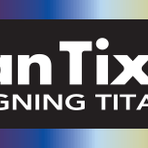Nippon Steel's Strategic Maneuver: Selling Assets to Secure a Future
September 24, 2024, 4:18 pm

Location: United States, Pennsylvania, Pittsburgh
Employees: 10001+
Founded date: 1901
Total raised: $240M
Nippon Steel is on the move. The Japanese steel giant has announced plans to sell 2.9 million shares in South Korea's Posco Holdings. This decision is not just a financial transaction; it’s a strategic play to enhance asset efficiency. The company aims to streamline its operations and bolster its financial standing as it prepares for a significant acquisition.
The stakes are high. Nippon Steel is eyeing a $14.9 billion takeover of U.S. Steel. This ambitious bid is a double-edged sword. On one side, it promises growth and expansion. On the other, it brings a whirlwind of challenges, especially with the looming political landscape in the United States. The upcoming presidential elections add a layer of uncertainty. Political opposition could derail the acquisition, leaving Nippon Steel in a precarious position.
To navigate these turbulent waters, Nippon Steel is taking proactive steps. The company plans to offload at least $211 million in assets this fiscal year. This move is designed to manage its debt effectively. Debt management is crucial, especially when pursuing such a massive acquisition. The company has already secured $16 billion in loans from three major Japanese banks to fund the U.S. Steel deal. However, with the political climate shifting, Nippon Steel must ensure it remains financially agile.
The sale of Posco shares is a calculated risk. Nippon Steel is not just selling off assets; it’s making a statement. It’s about improving asset efficiency. In the world of steel, efficiency is king. Every dollar counts. By divesting from Posco, Nippon Steel can focus on its core operations and strengthen its balance sheet. This is a classic case of trimming the fat to fuel growth.
But what does this mean for Posco? The South Korean steelmaker is a significant player in the industry. Nippon Steel’s decision to sell shares could impact Posco’s stock performance. Investors will be watching closely. The market reacts swiftly to such news. A drop in share price could signal trouble, while stability might indicate confidence in Posco’s future.
Nippon Steel’s strategy reflects a broader trend in the steel industry. Companies are increasingly looking to consolidate and streamline operations. The global market is shifting. Competition is fierce. Steelmakers must adapt or risk being left behind. Nippon Steel’s move to sell assets is a clear indication of this trend. It’s about survival in a rapidly changing landscape.
The timing of the sale is also critical. Nippon Steel has not disclosed when the sale will occur or how it will impact financial results. This ambiguity leaves room for speculation. Investors will be eager for clarity. The company’s ability to communicate its strategy effectively will be vital in maintaining investor confidence.
Moreover, the upcoming U.S. elections could play a pivotal role in Nippon Steel’s plans. The political climate in the U.S. is unpredictable. A change in administration could alter the landscape for foreign investments. Nippon Steel must be prepared for any outcome. This uncertainty adds pressure to the company’s financial maneuvers.
In the backdrop of these developments, the steel industry is facing its own set of challenges. Global demand for steel is fluctuating. Supply chain disruptions continue to plague manufacturers. Nippon Steel’s decision to sell assets is a response to these pressures. It’s about staying nimble in a volatile market.
The implications of Nippon Steel’s actions extend beyond its own balance sheet. The company’s moves could influence the broader steel market. Other steelmakers may follow suit, looking to optimize their operations. This could lead to a wave of asset sales across the industry. The ripple effects could reshape the competitive landscape.
As Nippon Steel navigates this complex scenario, it must remain focused on its long-term goals. The acquisition of U.S. Steel represents a significant opportunity for growth. However, it also comes with risks. The company must balance its ambitions with prudent financial management. Selling off assets is just one piece of the puzzle.
In conclusion, Nippon Steel’s decision to sell shares in Posco Holdings is a strategic maneuver aimed at improving asset efficiency and managing debt. As the company prepares for a potential acquisition of U.S. Steel, it faces a myriad of challenges, including political opposition and market volatility. The steel industry is at a crossroads, and Nippon Steel’s actions could set the tone for the future. In a world where steel is the backbone of infrastructure, every decision counts. Nippon Steel is poised to make its mark, but the road ahead is fraught with uncertainty. The next few months will be crucial in determining the company’s fate and the direction of the steel industry as a whole.
The stakes are high. Nippon Steel is eyeing a $14.9 billion takeover of U.S. Steel. This ambitious bid is a double-edged sword. On one side, it promises growth and expansion. On the other, it brings a whirlwind of challenges, especially with the looming political landscape in the United States. The upcoming presidential elections add a layer of uncertainty. Political opposition could derail the acquisition, leaving Nippon Steel in a precarious position.
To navigate these turbulent waters, Nippon Steel is taking proactive steps. The company plans to offload at least $211 million in assets this fiscal year. This move is designed to manage its debt effectively. Debt management is crucial, especially when pursuing such a massive acquisition. The company has already secured $16 billion in loans from three major Japanese banks to fund the U.S. Steel deal. However, with the political climate shifting, Nippon Steel must ensure it remains financially agile.
The sale of Posco shares is a calculated risk. Nippon Steel is not just selling off assets; it’s making a statement. It’s about improving asset efficiency. In the world of steel, efficiency is king. Every dollar counts. By divesting from Posco, Nippon Steel can focus on its core operations and strengthen its balance sheet. This is a classic case of trimming the fat to fuel growth.
But what does this mean for Posco? The South Korean steelmaker is a significant player in the industry. Nippon Steel’s decision to sell shares could impact Posco’s stock performance. Investors will be watching closely. The market reacts swiftly to such news. A drop in share price could signal trouble, while stability might indicate confidence in Posco’s future.
Nippon Steel’s strategy reflects a broader trend in the steel industry. Companies are increasingly looking to consolidate and streamline operations. The global market is shifting. Competition is fierce. Steelmakers must adapt or risk being left behind. Nippon Steel’s move to sell assets is a clear indication of this trend. It’s about survival in a rapidly changing landscape.
The timing of the sale is also critical. Nippon Steel has not disclosed when the sale will occur or how it will impact financial results. This ambiguity leaves room for speculation. Investors will be eager for clarity. The company’s ability to communicate its strategy effectively will be vital in maintaining investor confidence.
Moreover, the upcoming U.S. elections could play a pivotal role in Nippon Steel’s plans. The political climate in the U.S. is unpredictable. A change in administration could alter the landscape for foreign investments. Nippon Steel must be prepared for any outcome. This uncertainty adds pressure to the company’s financial maneuvers.
In the backdrop of these developments, the steel industry is facing its own set of challenges. Global demand for steel is fluctuating. Supply chain disruptions continue to plague manufacturers. Nippon Steel’s decision to sell assets is a response to these pressures. It’s about staying nimble in a volatile market.
The implications of Nippon Steel’s actions extend beyond its own balance sheet. The company’s moves could influence the broader steel market. Other steelmakers may follow suit, looking to optimize their operations. This could lead to a wave of asset sales across the industry. The ripple effects could reshape the competitive landscape.
As Nippon Steel navigates this complex scenario, it must remain focused on its long-term goals. The acquisition of U.S. Steel represents a significant opportunity for growth. However, it also comes with risks. The company must balance its ambitions with prudent financial management. Selling off assets is just one piece of the puzzle.
In conclusion, Nippon Steel’s decision to sell shares in Posco Holdings is a strategic maneuver aimed at improving asset efficiency and managing debt. As the company prepares for a potential acquisition of U.S. Steel, it faces a myriad of challenges, including political opposition and market volatility. The steel industry is at a crossroads, and Nippon Steel’s actions could set the tone for the future. In a world where steel is the backbone of infrastructure, every decision counts. Nippon Steel is poised to make its mark, but the road ahead is fraught with uncertainty. The next few months will be crucial in determining the company’s fate and the direction of the steel industry as a whole.
